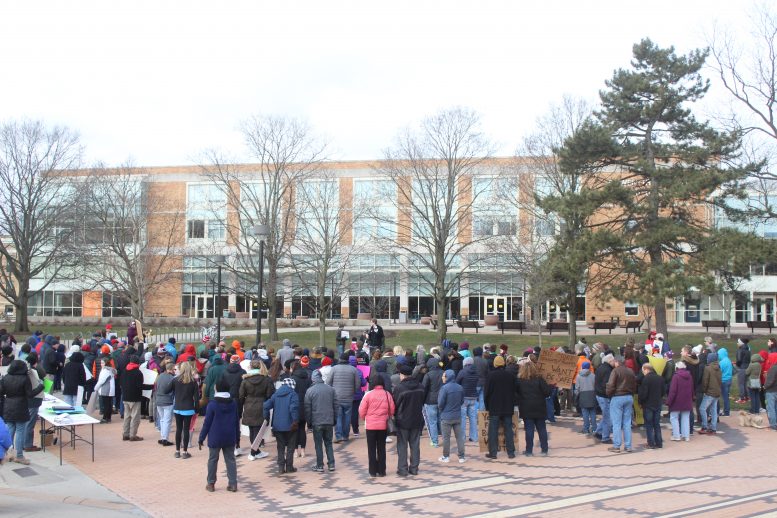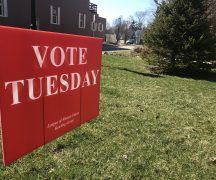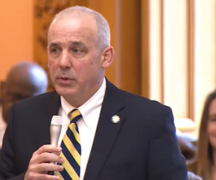By Susan Tebben
Ohio Capital Journal
An overflowing group of speakers from religious advocacy groups and conservative-leaning student groups came to support a bill to remove “free speech zones” on college campuses and policies some say don’t allow First Amendment rights.
This was the second hearing for Senate Bill 40, dubbed the “Forming Open and Robust University Minds Act,” a Republican-sponsored bill that requires state institutions to report and publish courses of action for free expression violations, and prohibits enforcement of policies that limit or restrict First Amendment rights of anyone in public areas of campuses.
Under the bill, outdoor spaces on campuses would be public forums rather than “free speech zones” established on some state institutions. A school is allowed certain “time, place and manner restrictions” when developed in service of a “significant institutional interest,” with “clear, published, viewpoint-and-content-neutral criteria,” according to analysis of the bill by the Legislative Service Commission.
Removed from current law would be a provision barring members of the Communist Party from using facilities, along with organizations which “advocate the overthrow of the U.S. government and its institutions by force or violence,” or persons “whose presence is not conducive to high ethical and moral standards or the primary educational purposes and orderly conduct of the institution.”
Time, place and manner was talked about at length during Tuesday’s House Higher Education Committee meeting, where the bill was hearing proponent testimony. Aaron Baer of the religious rights advocacy group Citizens for Community Values said the bill makes clear that no one can disrupt educational time, and clarifies existing First Amendment rights.
“(The bill) makes clear that time, place and manner restrictions are equally restricted,” Baer told the committee.
The conservative group Young Americans for Liberty was represented by multiple people, including University of Akron student Sophia Fisher, who is also president of the campus chapter of Turning Point USA.
“As a group, we have had plenty of incidents where our right to free speech has been infringed upon,” Fisher said in her testimony, later talking about other students ripping up posters as they tabled on campus, and social media bullying the group had received.
Fisher said while she recognizes the need to limit “certain types of speech,” Senate Bill 40 would allow campuses to regain the ability “to have civil discussions if it differs from the mainstream belief.”
“Universities are meant to be places where ideas are debated not dictated,” Fisher said. “Let’s return to a time when both sides weren’t painted as villians and instead viewed as human beings with a different opinion.”
In previous hearings on the bill before it unanimously passed the Senate, the ACLU said some of the bill’s language had merit, and some “give us pause.”
The ACLU supported the removal of free speech zones on campuses and the communist prohibition, along with allowances for spontaneous assemblies for students and individuals.
But Gary Daniels, chief lobbyist for the ACLU of Ohio, said the bill’s language specifying the principles for the courts to decide lawsuits and discipline could leave Ohio law “antiquated and frozen in time,” much like the communist language.
Daniels also said “unclear language” on the rights of counter-protestors and the definitions of some parts of the bill could lead to confusion.
“This lack of clarity in some provisions of SB 40 and too much rigidity in others will lead to further confusion for students, speakers, administrators and university staff and will inevitably conflict with future court rulings on campus free speech,” Daniels wrote in his testimony.





